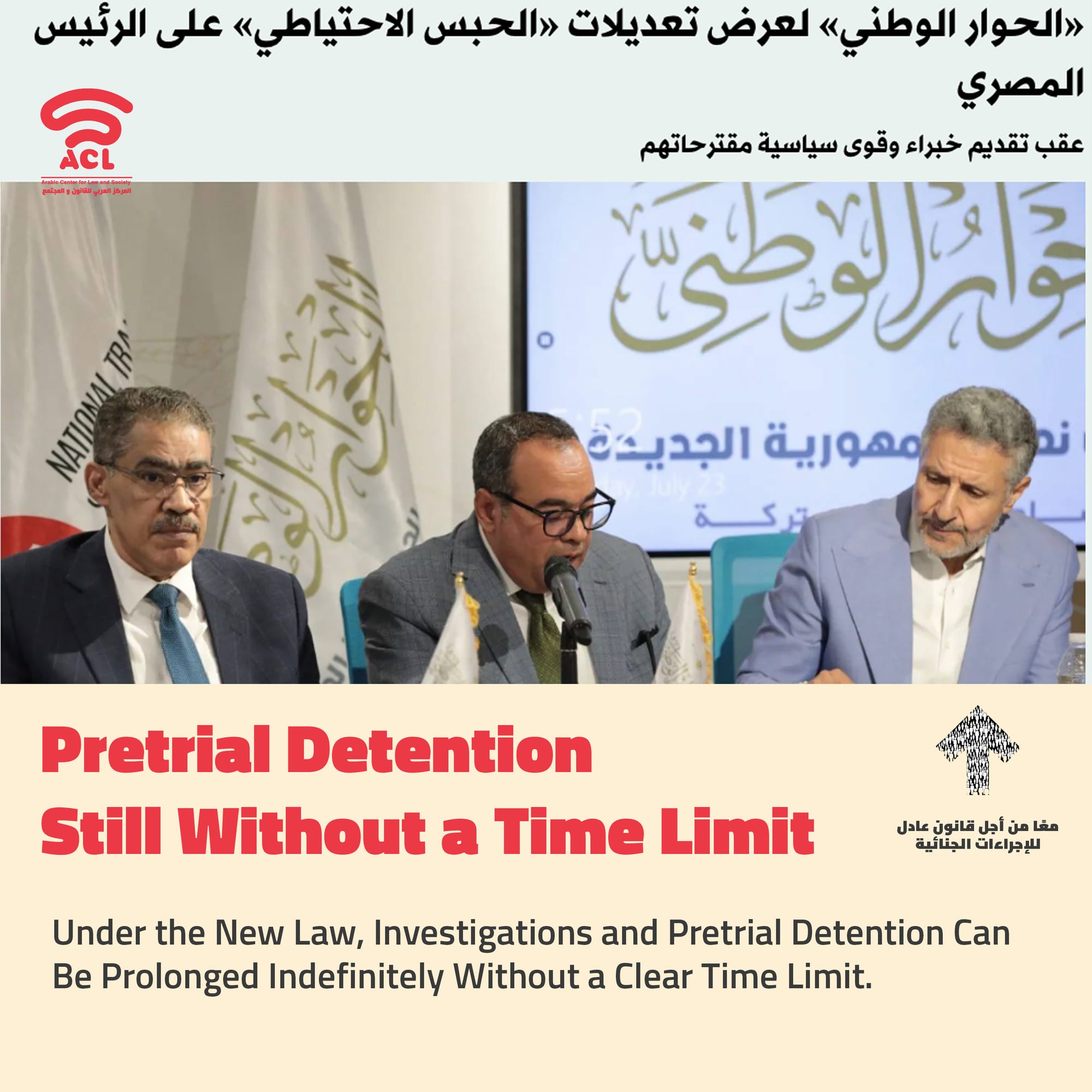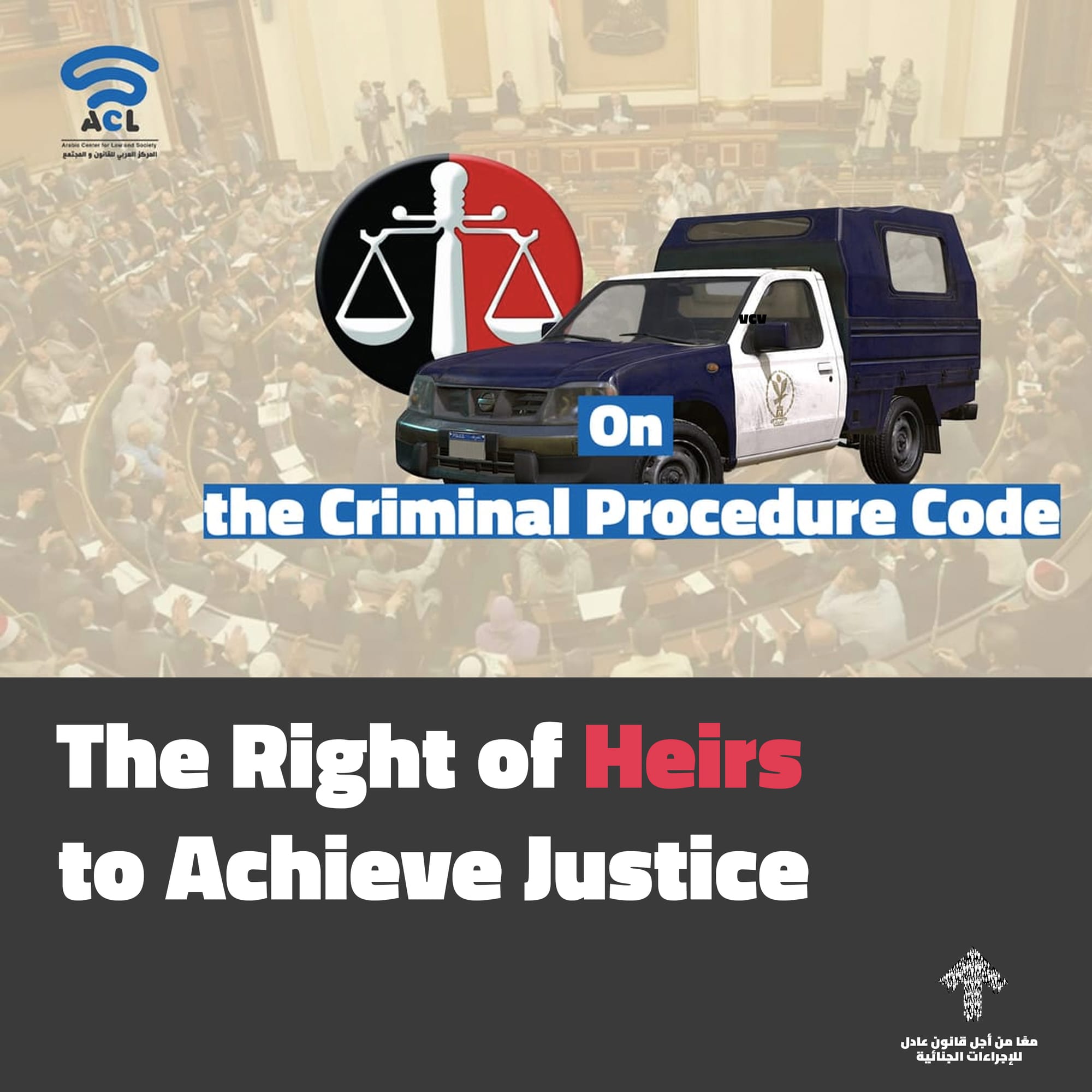Does the Amendment to Article (38) Redefine Justice and Protect Rights?

In an effort to modernize legislation and strike a balance between combating crime and safeguarding individual rights, the proposed amendment to Article (38) of the Criminal Procedure Code aims to address several issues related to the powers of judicial officers. The new text seeks to minimize the misuse of authority while upholding the principles of justice and the rule of law.
The Draft Text of Article (38) Proposed by Parliament:A judicial officer may order the arrest of the present accused if sufficient evidence exists against them in cases of flagrant delicto involving felonies or misdemeanors punishable by imprisonment for more than three months.
The Campaign’s Proposal for Article (38):A judicial officer who is at least a police officer may arrest the present suspect in cases of flagrant delicto involving felonies or misdemeanors punishable by imprisonment for more than six months if sufficient evidence exists against them.
Legal Analysis: What Does the Amendment Address?
- Defining the Scope of Judicial Officers’ Authority: The current text grants the power of arrest to all judicial officers, regardless of their rank or qualifications while the proposed text limits this authority to police officers, ensuring a more specialized and reliable decision-making process.
- Reducing Arbitrary Arrests: Raising the minimum penalty threshold for arrest from three months to six months reduces the likelihood of arbitrary arrests.
- Protecting Individual Rights: Replacing the term "accused" with "suspect" introduces greater legal precision. "Accused" implies the existence of formal charges, whereas "suspect" is more appropriate for the preliminary arrest stage before referral to the prosecution.
Practical Example: How Does the Amendment Impact Practice?
- Before the Amendment:
- Any judicial officer, regardless of rank, could arrest an individual for a misdemeanor punishable by as little as three months' imprisonment.
- After the Amendment:
- Only police officers have the authority to arrest.
- The anticipated penalty for the offense must be at least six months' imprisonment.
- The term "suspect" is used, thereby reducing the criminal stigma associated with arrest before the case is referred to the prosecution.




